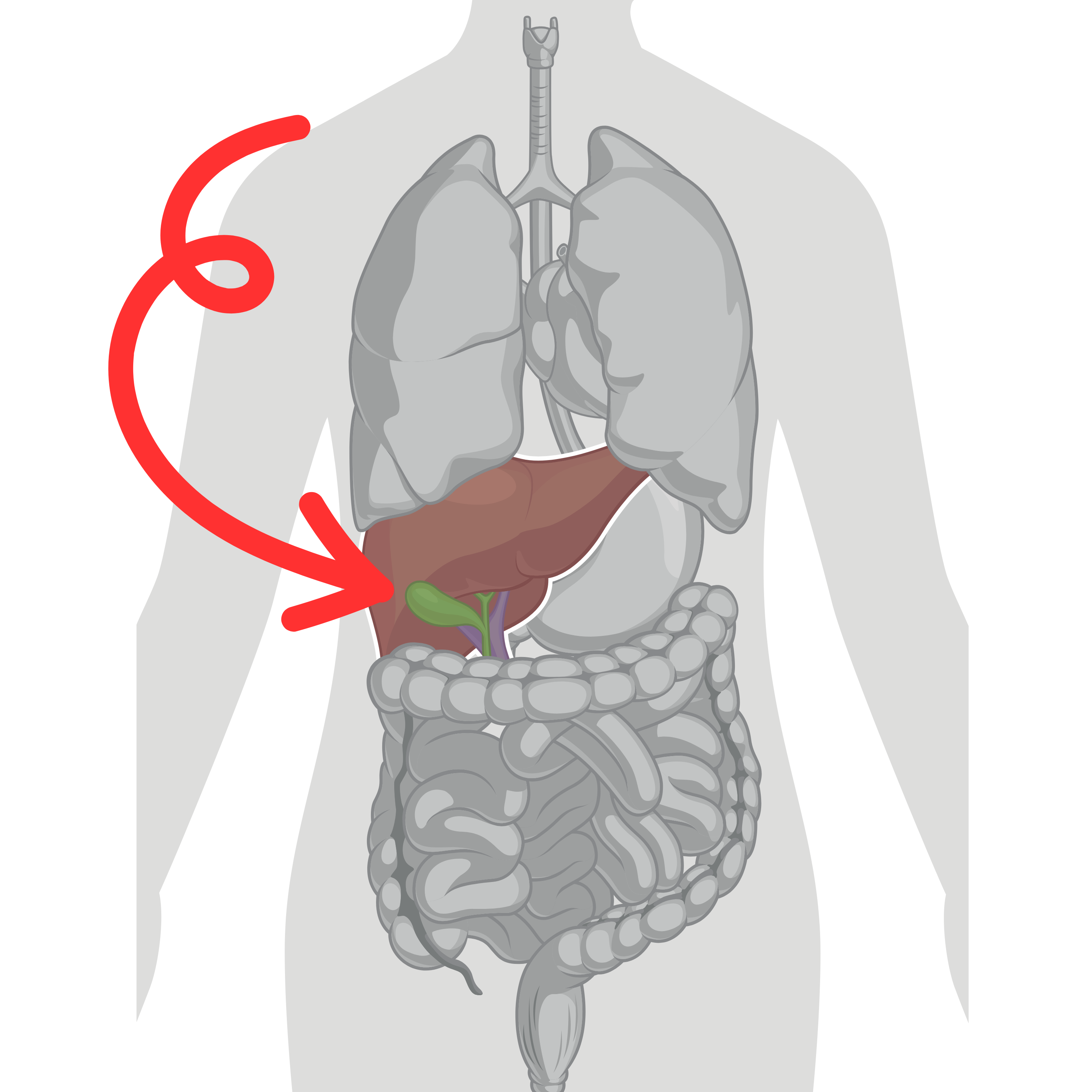

27
Sep
The Gallbladder: A Vital Organ for Healthy Digestion and Detoxification

The gallbladder is a small, pear-shaped organ nestled beneath the liver on the right side of the human body. Despite its modest size, it is outsized in our overall health and well-being, particularly regarding digestion and detoxification. Understanding the gallbladder’s functions and the signs of potential issues can help you maintain a healthy digestive system and body.
Purpose and Function of the Gallbladder
The gallbladder’s primary function is to store and concentrate bile, a liver-produced substance that helps digest fats. When you consume food, especially fatty foods, your gallbladder releases bile into the small intestine. This aids in the breakdown and absorption of dietary fats, vitamins, and nutrients.
In addition to digestion, bile also plays a crucial role in the body’s natural detoxification process. It binds to toxins such as mycotoxins (toxic mold toxins, harmful chemicals) and carries them out of the body through the digestive system. In this way, the gallbladder indirectly contributes to eliminating harmful substances from the body.
New vs. Old
The production of new bile rather than solely relying on recycling the old is crucial for the optimal health of the body. When the body continually recycles bile, it may lead to the reabsorption of toxins, which were initially meant to be expelled. By generating new bile, the liver ensures that there is always a fresh supply ready for digestion and detoxification, keeping the process efficient and effective. The production of new bile helps maintain the liver’s health and function, as the process stimulates liver activity and promotes replacing old, potentially damaged cells with new ones. Therefore, the continuous production of new bile is critical for maintaining healthy digestive and detoxification systems.
Signs of a Sluggish Gallbladder
A sluggish gallbladder may not produce or release enough bile, leading to indigestion, bloating, constipation, and fat intolerance. Causes may include a poor diet, mold, parasites, lack of physical activity, and chronic stress. It’s essential to address these symptoms promptly, as untreated gallbladder problems can lead to more severe conditions such as gallstones or cholecystitis (an inflamed gallbladder).
Tips for a Healthy Gallbladder
Maintaining gallbladder health is an essential part of overall well-being and involves some simple, practical steps:
- Eat a balanced diet: Choose a diet rich in insoluble, soluble, prebiotic fiber, proteins, fruits, and vegetables. A balanced diet aids in optimum digestion and helps prevent gallbladder issues.
- Hydrate: Drink plenty of water throughout the day. Proper hydration is crucial for healthy bile production.
- Exercise regularly: Regular physical activity stimulates the gallbladder, aids digestion, and helps manage body weight.
- Limit processed foods: Avoid or limit the consumption of highly processed foods, which often contain unhealthy fats and may lead to gallstones.
Living without a Gallbladder
For those who’ve had their gallbladder removed, your body can still digest food but may have a more challenging time processing fats. Bile salts like Cholacol from Standard Process or Advanced TUDCA from CellCore and GB Support from Doctor’s Reseach help support the body, all available at the Nutritional Wellness Center. These supplements mimic the bile your gallbladder produces, aiding digestion and nutrient absorption.
Remember, maintaining your gallbladder health is integral to your overall wellness journey. By understanding its function and the signs of potential issues, you can take proactive steps to keep this vital organ healthy and functioning at its best!
